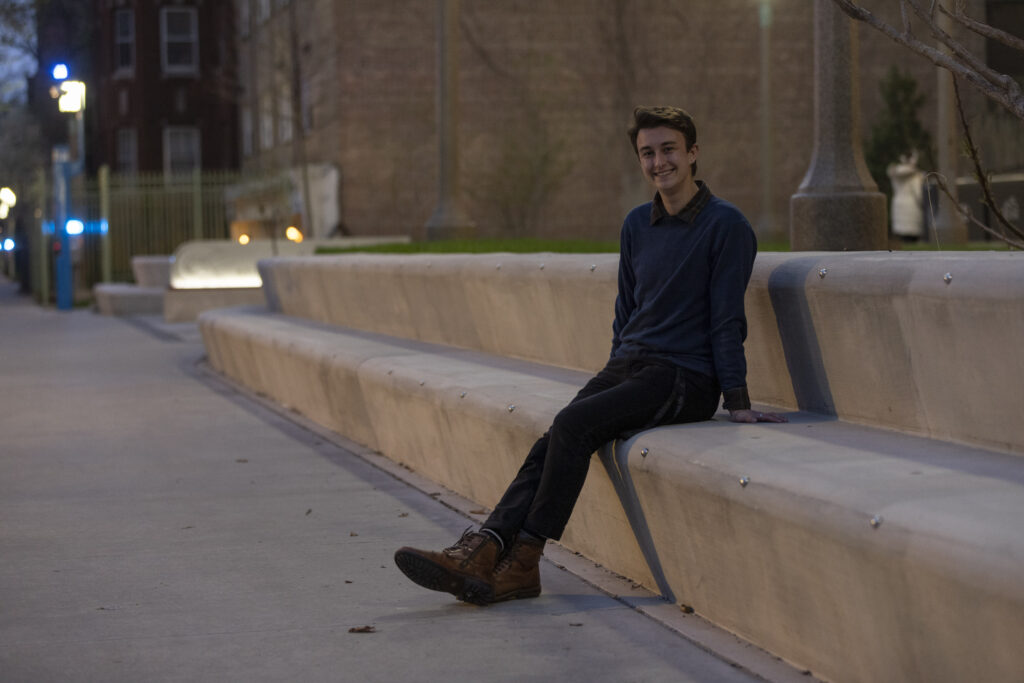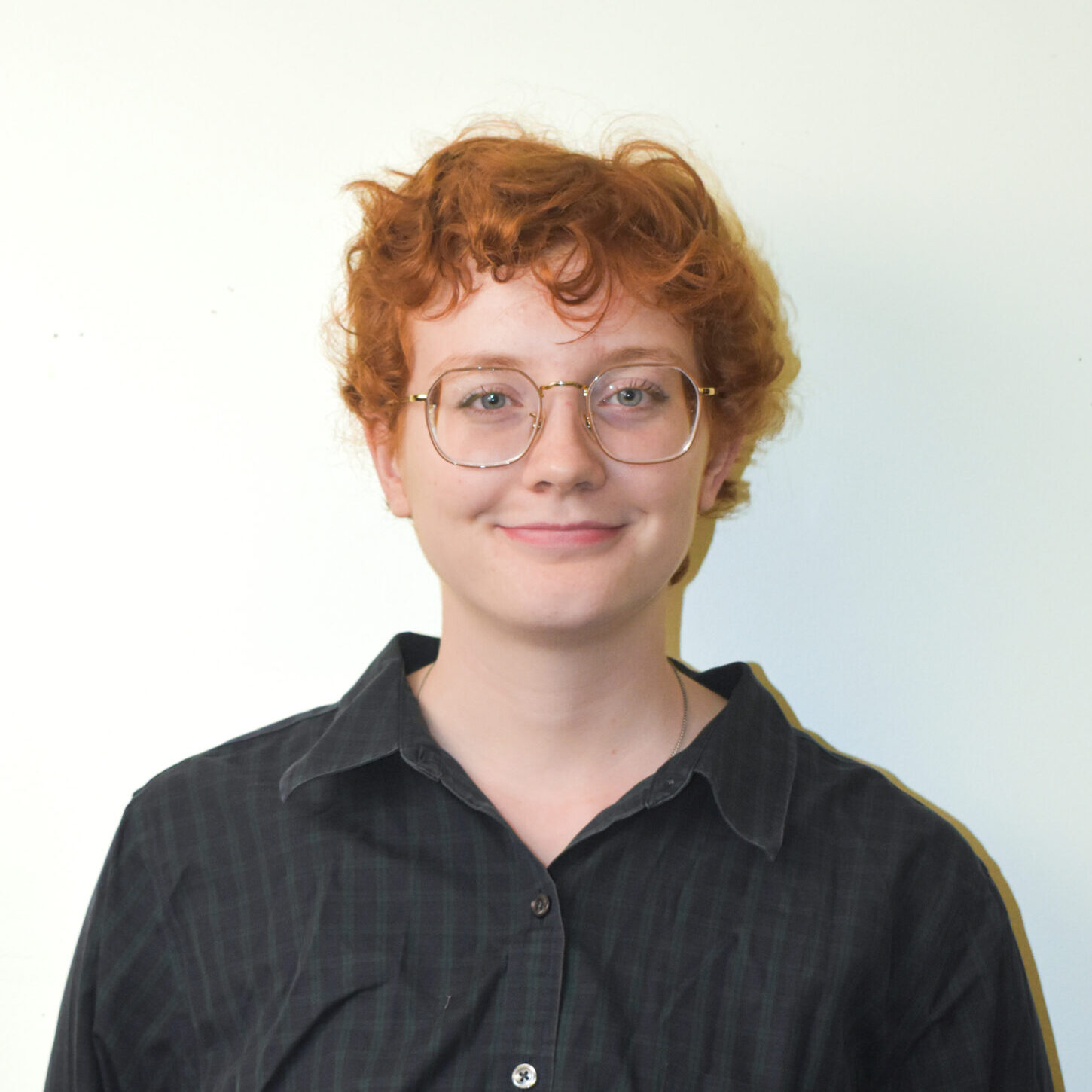April is Autism Acceptance Month, also known as Autism Awareness Month, which focuses on autism spectrum disorder (ASD) and the autistic community, according to the Autism Society of America.
Autistic Students Find Community in College
Adjusting to higher-level classes, dining hall food and dorm life are all common challenges for first-year college students.
But what about finding — and fostering — community?
“It was hard to find community with anyone, regardless of whether they were disabled as well,” Jameson Walker, an autistic student at Loyola, said. “If you’re somebody with social anxiety, autism, really any neurodiversity, that can be super hard to do.”
April is Autism Acceptance Month, also known as Autism Awareness Month, which focuses on autism spectrum disorder (ASD) and the autistic community, according to the Autism Society of America. Different people may use different terminology, and it’s best to ask each person which words they prefer, according to the Autistic Self Advocacy Network.
While autism affects everyone differently, for Walker it brings difficulties in social interactions, sensory sensitivity and rigid routines. Routines can be particularly hard to fit into the casual, spontaneous atmosphere of college life, Walker said.
Walker said after being misdiagnosed as a child, he received an autism diagnosis at 18, which is considered late for white men, according to the Journal of the American Medical Association. Girls and non-white people are often misdiagnosed or tested at lower rates, according to the National Library of Medicine. A recent study published in March found that boys are 3.8 times more likely to be diagnosed with autism than girls, according to The New York Times.
Walker said parts of campus life can be difficult for people with sensory sensitivity, or different reactions to things like sound and scent. During convocation, bells ring for two hours straight, and dining halls are full of bright lights, loud conversation and strong smells.
Another issue Walker faced was communication between professors and the Student Accommodation Center (SAC). He said he has flexible attendance and extended deadlines for assignments, but professors’ interpretations of those have varied greatly.
He said some professors may give him one or two extra weeks to submit assignments, while others may give him 24 hours and some might not give extra time at all.
“I have to defend myself, advocate for myself really frequently for things I’ve already had an approved accommodation for,” Walker said. “I’m just trying to access the same course material and have the same shot at doing well in the course as everyone else.”
Walker, now a 19-year-old sophomore, is co-president of Loyola’s Students with Disabilities Coalition. He said the group, founded in June, aims to amplify disabled voices, form a welcoming community and improve treatment of disabled students by talking with groups like the SAC.
In the fall, the SAC had a large turnover, meaning staff came and left quickly, according to interim director Karen Pettus. Pettus, who came to Loyola in January, was formerly a director of the Student Disability Resource Center at the University of South Carolina for 28 years.
“There are a lot of changes we’re making to the SAC,” Pettus said. “We’re working with faculty, working with student affairs, working with a number of different offices to better understand students with disabilities.”
Pettus said students with autism may be subjects of bullying and harassment. She said she heard one story where university police at South Carolina were called on a student with autism because others misinterpreted their body language and style of communication.
Besides communication difficulties, Pettus said another common trait found in autism is sensory sensitivity, which Walker said can make it hard to attend things like concerts. With basketball being so popular at Loyola, Pettus said students shouldn’t even have to ask for accommodations like screen readers or captions on the jumbotron at games — those should be there already.
“Providing accommodations is important, but making our programs and services accessible to everybody is more important,” she said.
Walker said some people may view autism not as an illness or a disability, but as an identity. While he himself views it as a disability, he said each individual is different and uses different language to describe themselves.

“A lot of people see it as an innate part of their being,” Walker said. “It’s not disabling, it’s just who they are. I mean, how can you separate who you are from your neurotype?”
This sentiment is true for sophomore Lilly Allan, who said their autism is inseparable from their identity. Allan, 20, said they were officially diagnosed last summer after being met with “complete dismissal” from a psychiatrist from the Wellness Center, who told them there was no need for testing because their grades were good.
David deBoer, director of counseling at the Wellness Center, said while he’d like to clear up any misunderstanding, the department couldn’t comment on individual patients due to medical privacy laws.
“We want to respond to student concerns, and it’s upsetting to me as the director that they feel they had a bad experience,” deBoer said.
The Wellness Center doesn’t provide services specifically for students on the spectrum but recommends the Autism Clinic and TAP Training Center at University of Illinois Chicago, deBoer said. The clinic didn’t respond to requests for comment.
Allan said they’ve also faced difficulties with the SAC and find it easier to speak to professors directly about accommodations.
“The university probably isn’t putting enough money into the Student Accessibility Center,” Allan said. “These people aren’t getting paid enough. To me, it says that they really don’t care about making education accessible to their students.”
In November, The Phoenix reported on low staffing and student frustration at the SAC, a story for which Allan was also interviewed and said poor communication resulted in not being able to use accommodations that semester.
Allan said most resources for autistic people are geared toward young boys, which doesn’t fit their experience as a femme-presenting nonbinary adult.
“That’s kind of an overlooked experience,” they said. “It feels isolating, to some extent. I know that there’s people out there that are having these same experiences as me, but I can’t find them.”
With it being Autism Acceptance Month, Allan said they want to see less stigma and more education on the disorder.
“Nobody can have more autism than another person,” Allan said. “It manifests differently in all people.”
Similarly, deBoer said there’s no universal experience of autism.
“It’s seen as existing on a spectrum of severity, of a constellation of symptoms,” he said.
deBoer, who has worked at the Wellness Center since 2004, said students on the spectrum may benefit from psychiatry, group therapy and individual therapy. He said awareness and knowledge on autism helps build a healthier community.
Community is important for Walker, who said the Students with Disabilities Coalition acts as the community he missed as a first-year.
“It’s really nice to have a community for disabled people and for people who understand the experience that I have in my daily life,” he said. “It’s coming together over a shared experience.”
Featured image courtesy of Holden Green
-

Mao Reynolds is a fourth-year majoring in Multimedia Journalism and Italian Studies. He is Deputy Arts Editor and Crossword Editor for The Phoenix. When he’s not writing about the diversity of Loyola student life or reviewing neighborhood spots, he likes bragging about being from the Northeast and making collages from thrifted magazines.
View all posts
Topics
Get the Loyola Phoenix newsletter straight to your inbox!


